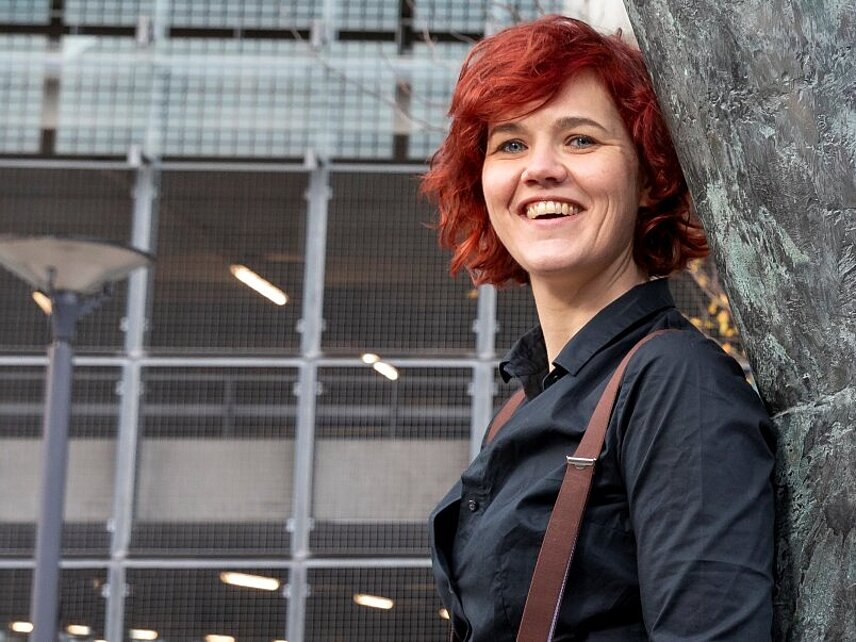26.11.2025
Marjolein Fokkema from Leiden University will visit RC Trust to explore how machine learning can become a truly interpretable tool for science.
 Photo: Patricia Nauta
Photo: Patricia Nauta
When scientific practice faces increasingly complex data landscapes, the question of how to draw reliable, transparent conclusions becomes more urgent. This week, RC Trust welcomes Marjolein Fokkema, a leading scholar at Leiden University, whose work bridges machine learning, psychological assessment, and applied decision-making. Her visit offers a rare chance to experience cutting-edge research explained in a way that resonates across disciplines – whether one is shaping policy, conducting research, studying emerging methods, or simply curious about how artificial intelligence supports better decisions in society.
Fokkema will begin the morning with a concise didactic introduction to Gradient Boosting Decision Trees, showing why these ensemble methods often outperform single models and how they learn from layered improvements. She will then present her recent research on RuleSHAP, a new approach that combines decision-tree ensembles with sparse Bayesian regression. While modern machine-learning models excel at prediction, they often fall short when researchers need effect sizes, uncertainty estimates, or tools for hypothesis testing. RuleSHAP closes this gap.
By providing posterior distributions for Shapley-value-based contributions of predictors, the method enables credible intervals and formal hypothesis testing – without sacrificing predictive performance. Fokkema illustrates this through an epidemiological case study on cholesterol and blood pressure, revealing complex nonlinear and interaction effects that traditional analyses often miss. The approach shows how interpretable AI can strengthen evidence-based work in fields such as medicine, behavioral science, and public health.
Her visit to RC Trust offers more than a research talk: it opens a space for exchange about how machine learning can support transparent and trustworthy scientific inference – an issue that matters for researchers, students, and anyone engaged in shaping the future of data-driven decision-making. This discussion will take place on Friday (28.11.) at 9:45 am in Joseph-von-Fraunhofer-Straße 25, Dortmund.
Category
- Talk